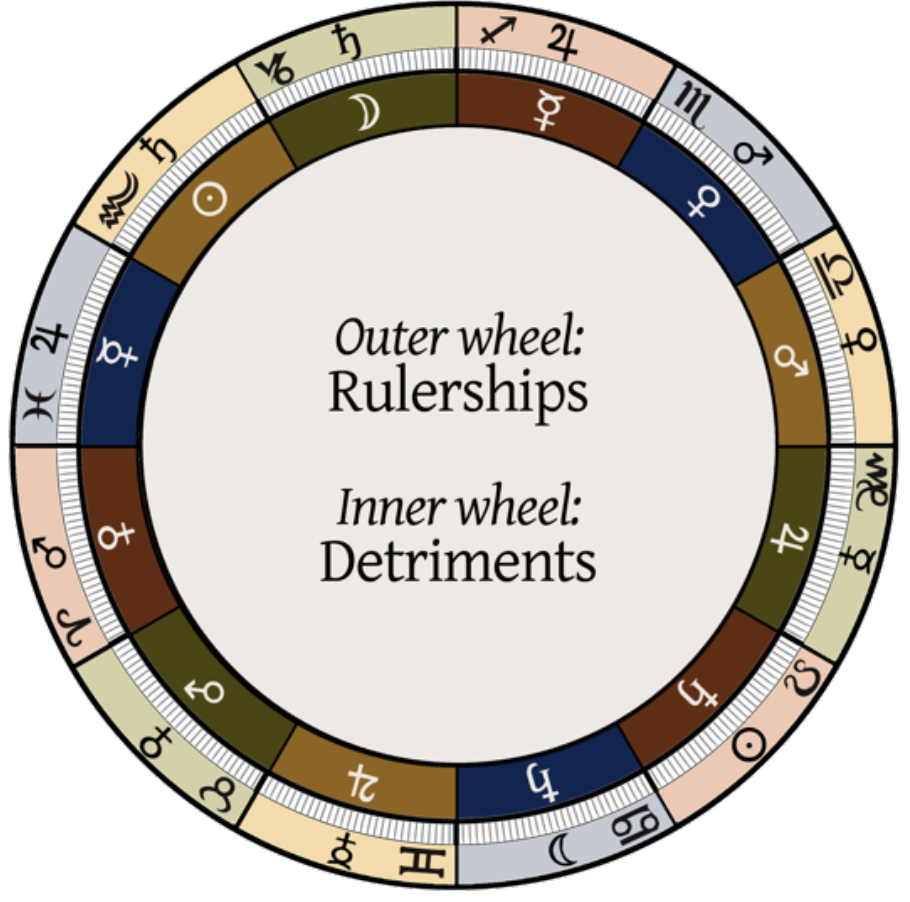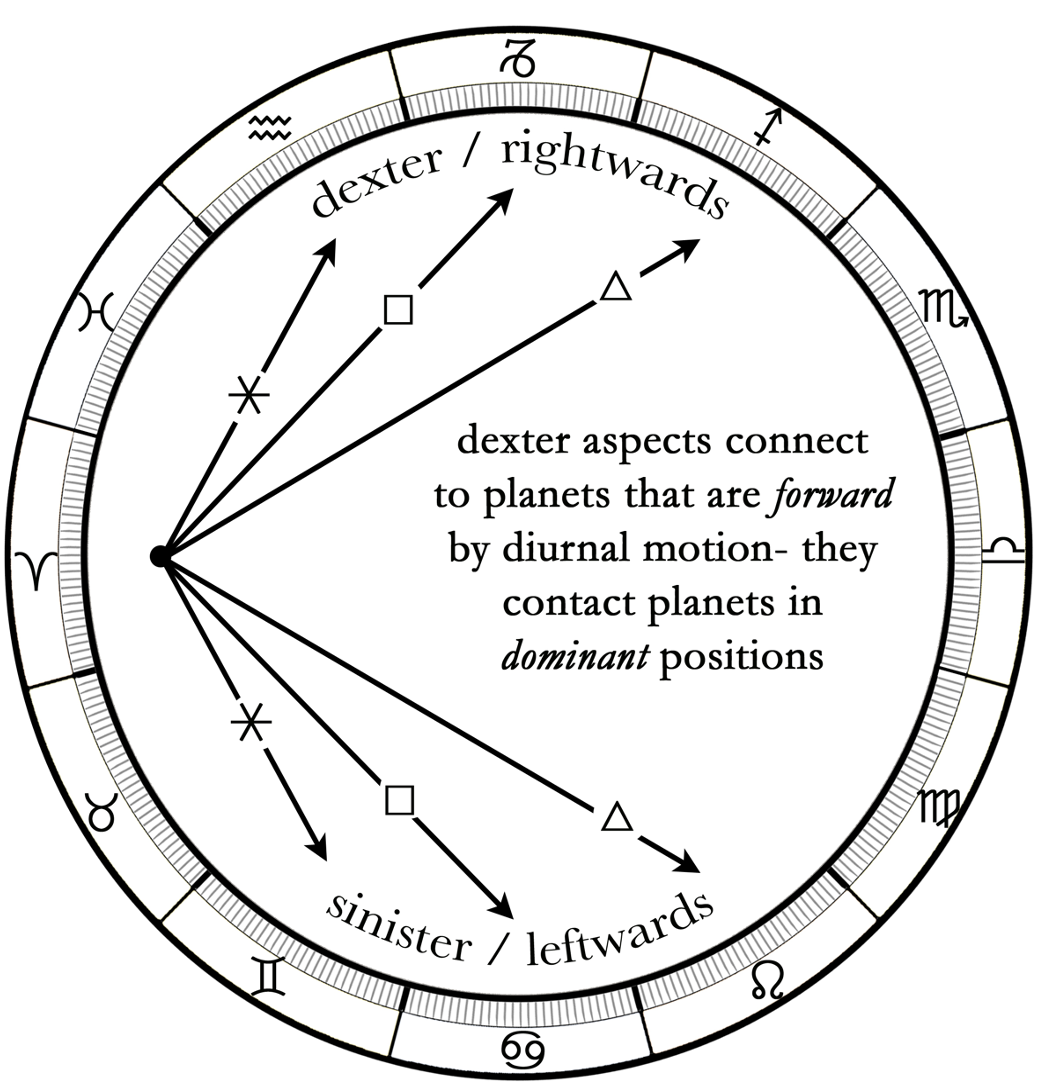Dariot, Claude - astrologer (1533-1594)French astrologer and physician who studied medicine at Montpellier but fled France after the St Bartholomew massacre and settled at Geneva where he worked as astrologer and physician at the town of Beaune. He published Ad Astrorum Judicia Facilis Introductio ‘Brief Introduction to the Judgement of the Stars’ in Latin in 1577. This was translated into English by F. W. Gent in 1583 and again in 1598, with a further revised English edition appearing in 1653. Lilly listed Dariot first when he acknowledged the sources of his own work. |
DecansAlso called decanates: Egyptian term for the faces, means
‘tenths’ because each decan covers 10°. See ‘faces’. |
DecliningThis is another term for setting, or falling away from the angles. |
DecumbitureName of the branch of astrology that examines a chart drawn
for the time of someone falling sick or becoming aware of an illness. Study of
that chart allows examination of the root causes of the illness, the best
approach and times for treatment, and a prognostication of recovery or relapse.
(From decumbere, ‘to lie down’). |
Derived housesSee ‘turning the chart’. |
DescendantThe degree of the ecliptic (zodiac) that meets
the western horizon, and which denotes the 7th house cusp. So called because planets at this point
descend beneath the horizon and are no longer visible to the naked eye. |
DetrimentA planet in detriment is in a sign opposite its sign of rulership. This is considered a debility or weakness for the planet.  |
Dexter/sinister Dexter literally means ‘of the right’ and refers
to something on the right hand side; sinister means ‘of the left’ and refers to
something on the left hand side. According to Pythagorean principles, movement
towards the right is more natural and direct than movement towards the left
(hence the term ‘righteous’ or the negative undertones given to the word
‘sinister’ generally). This partly recognises the influence of diurnal motion
(by which planets move from left to right), and the fact that in any cycle
between two planets, the faster moving planet will cast its aspect to the other
on the right hand side whilst the cycle is waxing (suggesting growth and
vigour), and to the left hand side when the cycle is waning (suggesting
retirement and weakness). A ‘dexter aspect’ is therefore said to be more
forceful and effective than a sinister one. Dexter aspects are formed in
keeping with diurnal revolution (for example, a planet in Pisces applying to a
sextile of a planet in Capricorn); sinister aspects are formed against diurnal
revolution (for example, a planet in Pisces making a sextile to a planet in Taurus). |
Dignities & debilitiesFactors that increase a planet’s strength are
called dignities; those that weaken it, debilities. These are termed ‘essential’
when they rely upon zodiacal position; and ‘accidental’ if they rely upon
anything else. Thus the advantage offered to a planet by being in its own sign
or exaltation is an essential dignity, the disadvantage of being in its sign of
detriment or fall is an essential debility; but combustion, aspectual
connections and matters of angularity or house position are accidental
dignities or debilities. |
DispositionThe overall condition, influence, or virtue of a
planet once all matters of dignity and debility have been judged. To commit disposition means to pass
influence to another planet by aspect or reception. |